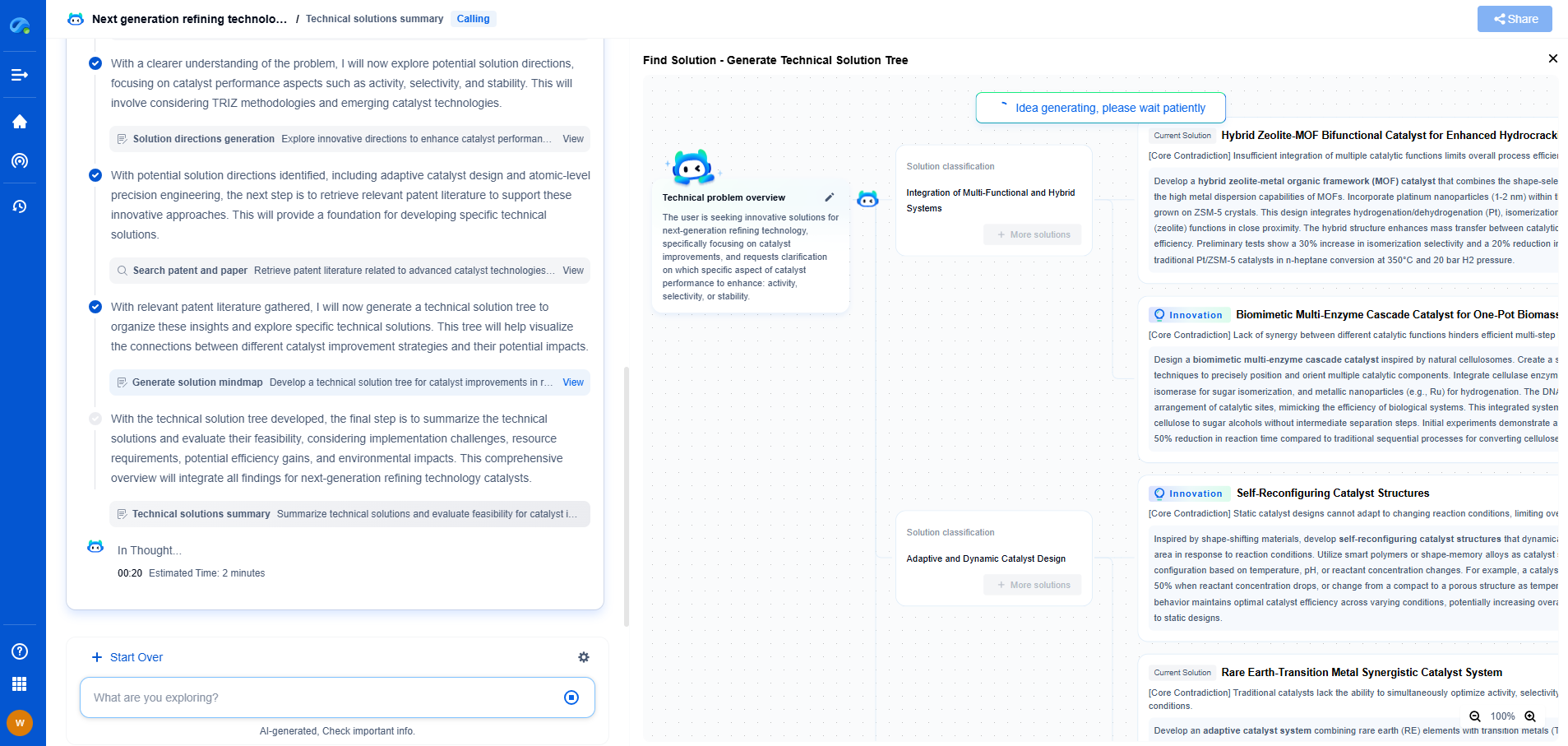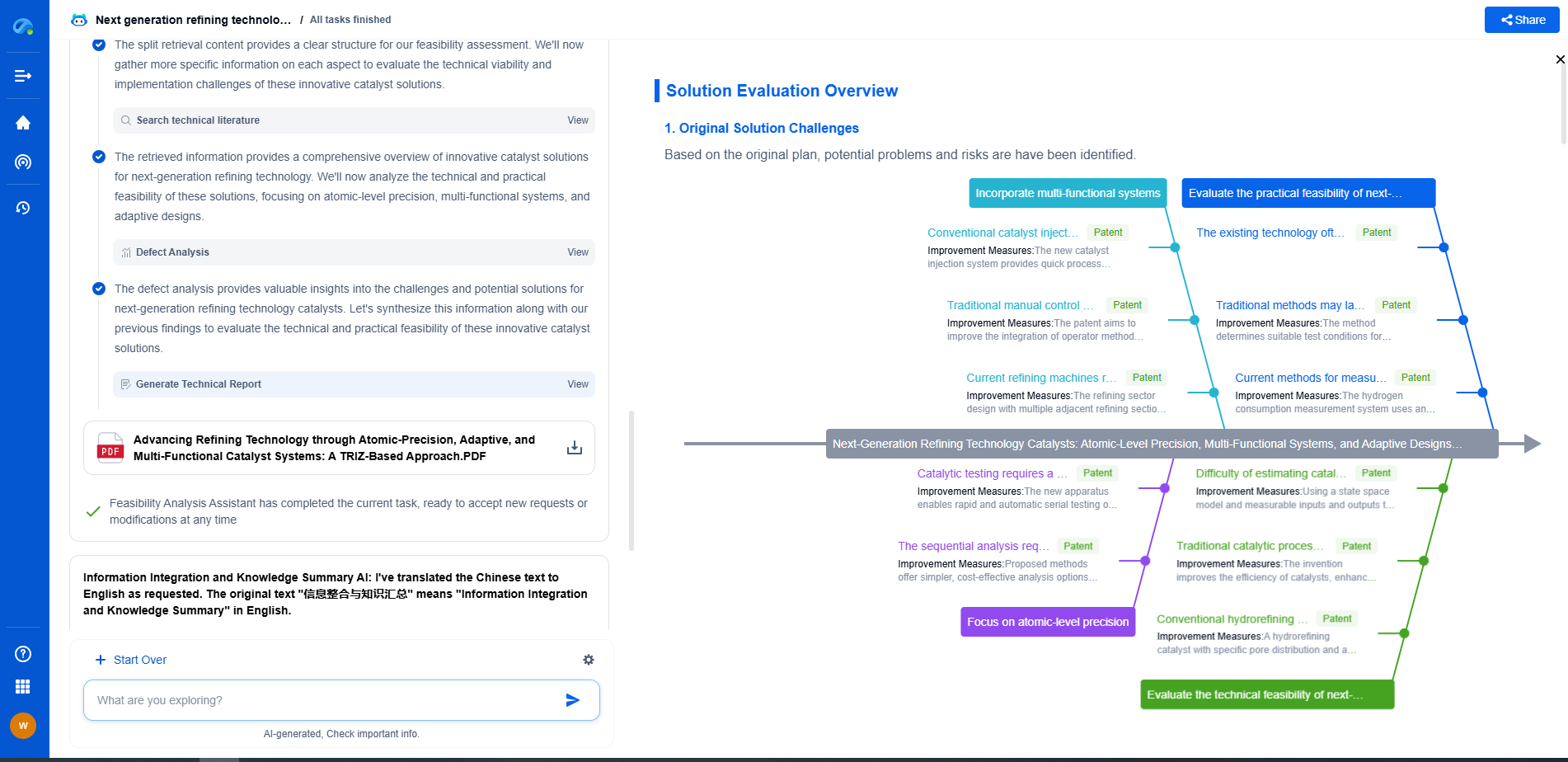Securing Your Data: Encryption Options for SSDs and HDDs
JUL 4, 2025 |
In an age where information is one of the most valuable assets, securing data has become paramount. Whether you are a business safeguarding sensitive customer information or an individual protecting personal files, understanding how to secure your data on storage devices is crucial. Solid State Drives (SSDs) and Hard Disk Drives (HDDs) are two common storage options, each with unique encryption methods to ensure data security. This article explores the various encryption options available for SSDs and HDDs, offering insights into how you can keep your data safe from prying eyes.
Understanding Encryption
Encryption is the process of converting data into a code to prevent unauthorized access. It ensures that even if data is intercepted, it remains unreadable without the correct decryption key. Encryption is a fundamental aspect of data security, and its importance cannot be overstated. With ever-evolving cyber threats, having an understanding of encryption and its implementation on SSDs and HDDs is essential for protecting your valuable data.
Encryption Options for SSDs
1. Hardware-Based Encryption
Hardware-based encryption is integrated into the SSD itself, offering robust security without compromising performance. This encryption method utilizes a dedicated processor on the drive, which encrypts and decrypts data seamlessly. One of the main advantages of hardware encryption is that it operates independently of the system's CPU, thereby preserving system resources.
Self-Encrypting Drives (SEDs) are a popular example of hardware-encrypted SSDs. SEDs automatically encrypt all data stored on the drive, requiring a password or key to decrypt it. This feature ensures that data is always protected, even if the drive is removed from the device.
2. Software-Based Encryption
Software-based encryption relies on programs to encrypt data. These programs run on the system's CPU and can be applied to any storage device, including SSDs. Software encryption offers flexibility, allowing users to choose different encryption algorithms and manage encryption keys.
BitLocker (for Windows) and FileVault (for macOS) are examples of software-based encryption tools. While software encryption provides strong security, it may affect system performance since it uses system resources. However, it remains a viable option for users who prioritize encryption flexibility over speed.
Encryption Options for HDDs
1. Full Disk Encryption
Full Disk Encryption (FDE) encrypts the entire content of a hard disk drive, making it inaccessible without the proper authentication credentials. FDE is beneficial for protecting data on lost or stolen devices, as it ensures that unauthorized users cannot access the drive's contents.
TrueCrypt and VeraCrypt are popular tools used for FDE. They offer the ability to encrypt entire drives or partitions, providing comprehensive protection against unauthorized access.
2. File-Level Encryption
File-level encryption targets specific files or folders, offering granular control over which data is encrypted. This method is useful when only certain files need to be secured, allowing users to protect sensitive information without encrypting the entire drive.
Tools like AxCrypt and GnuPG provide file-level encryption, enabling users to encrypt individual files with ease. File-level encryption is often used alongside other security measures to provide layered data protection.
Comparing Encryption Methods
When deciding between hardware and software encryption for SSDs and HDDs, several factors must be considered, including performance impact, ease of use, and security requirements.
Hardware-based encryption is ideal for those seeking high-performance security with minimal system impact. It offers seamless encryption without user intervention, ensuring continuous protection. However, it may be more costly than software solutions.
Software-based encryption provides flexibility and is generally more affordable. While it may affect system performance, it is suitable for users who prioritize control over encryption settings.
Conclusion: Choosing the Right Encryption for Your Needs
Securing your data on SSDs and HDDs is a critical task in today's digital landscape. Understanding the available encryption options allows you to make informed decisions about how to protect your valuable information. Whether you opt for hardware-based solutions like self-encrypting drives or software-based tools like BitLocker, the key is to implement a strategy that aligns with your security needs and budget. By prioritizing data encryption, you are taking a proactive step towards safeguarding your data against potential threats.
Accelerate Breakthroughs in Computing Systems with Patsnap Eureka
From evolving chip architectures to next-gen memory hierarchies, today’s computing innovation demands faster decisions, deeper insights, and agile R&D workflows. Whether you’re designing low-power edge devices, optimizing I/O throughput, or evaluating new compute models like quantum or neuromorphic systems, staying ahead of the curve requires more than technical know-how—it requires intelligent tools.
Patsnap Eureka, our intelligent AI assistant built for R&D professionals in high-tech sectors, empowers you with real-time expert-level analysis, technology roadmap exploration, and strategic mapping of core patents—all within a seamless, user-friendly interface.
Whether you’re innovating around secure boot flows, edge AI deployment, or heterogeneous compute frameworks, Eureka helps your team ideate faster, validate smarter, and protect innovation sooner.
🚀 Explore how Eureka can boost your computing systems R&D. Request a personalized demo today and see how AI is redefining how innovation happens in advanced computing.
- R&D
- Intellectual Property
- Life Sciences
- Materials
- Tech Scout
- Unparalleled Data Quality
- Higher Quality Content
- 60% Fewer Hallucinations
Browse by: Latest US Patents, China's latest patents, Technical Efficacy Thesaurus, Application Domain, Technology Topic, Popular Technical Reports.
© 2025 PatSnap. All rights reserved.Legal|Privacy policy|Modern Slavery Act Transparency Statement|Sitemap|About US| Contact US: help@patsnap.com

